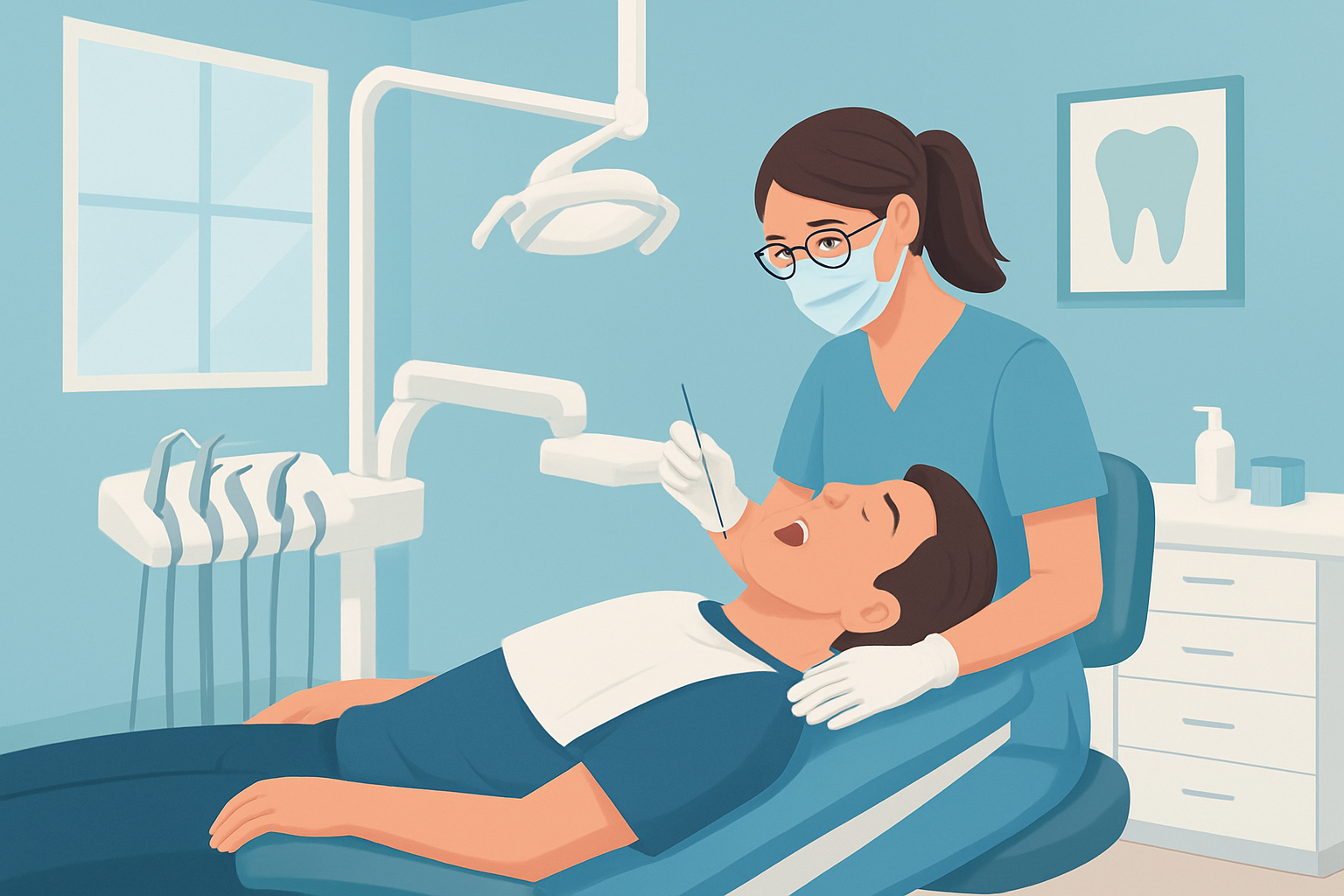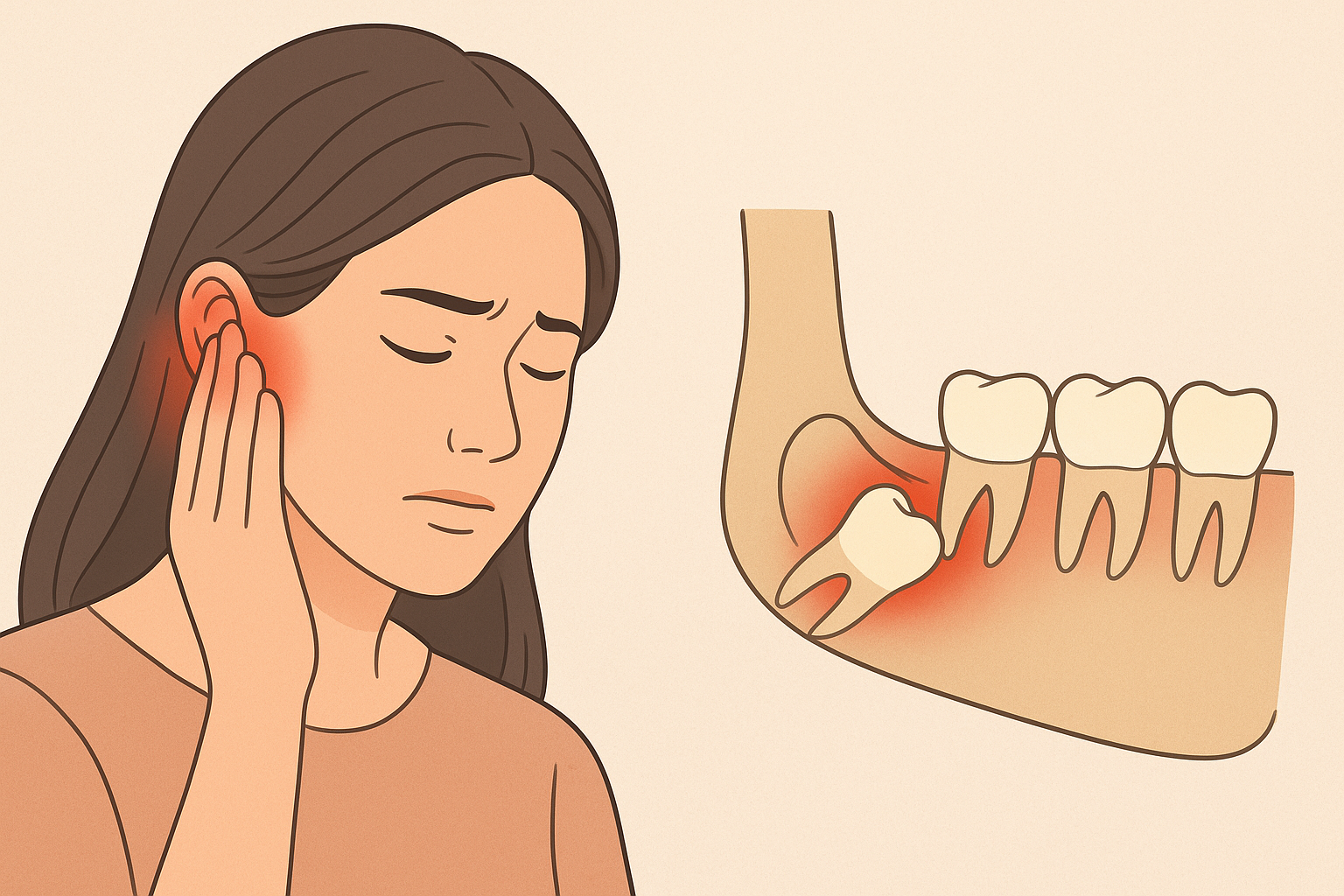How Much Does Wisdom Teeth Removal Really Cost?

The cost of wisdom teeth removal is one of the most common concerns among patients preparing for oral surgery. Whether you’re dealing with gum inflammation, pressure in the jaw, or recurring infection—or you simply want to avoid the long-term risks associated with impacted molars—understanding the price helps you plan ahead with confidence.
Wisdom tooth extraction isn’t a one-price-fits-all procedure. Costs vary depending on impaction level, anesthesia type, surgeon expertise, and location. They may also be influenced by symptoms or complications related to retained molars. If you’ve ever wondered about the long-term effects of keeping wisdom teeth, you’ll quickly understand why removal is so commonly recommended.
This comprehensive guide breaks down everything affecting the cost of wisdom teeth removal—average pricing, insurance coverage, common fees, recovery considerations, and even smart ways to save. By the end, you’ll know what to expect financially and medically so you can make informed decisions about your treatment.
Why Wisdom Teeth Removal Is Often Necessary
Wisdom teeth usually erupt between ages 17 and 25, a period when the jaw has already stopped growing. Because of this, many people don’t have enough space for their third molars. The result: impaction, inflammation, and shifts in the bite.
Common Reasons for Extraction
- Impaction: Teeth trapped beneath gum tissue or bone
- Gum disease: Caused by bacteria trapped around partially erupted molars
- Decay: Due to their deep position and difficulty to clean
- Jaw pain or pressure: As wisdom teeth push against surrounding structures
- Cyst formation: Rare but serious and often costly
Some people initially confuse wisdom tooth discomfort with ordinary toothache symptoms. If you’re unsure which one you’re experiencing, this comparison of wisdom tooth pain and a regular toothache can help clarify the difference.
What Factors Influence the Cost of Wisdom Teeth Removal?
Wisdom tooth removal can range from simple to highly complex, and the price reflects that variation. Here are the main elements that determine cost:
1. Type of Impaction
Soft Tissue Impaction
The tooth has broken through bone but remains covered partly by gum tissue.
Partial Bony Impaction
The tooth is partially encased in the jawbone, requiring more surgical time.
Complete Bony Impaction
The tooth remains fully embedded in bone, requiring more advanced techniques and increasing the complexity and cost dramatically.
2. Number of Teeth Being Removed
A single extraction is cheaper upfront, but many patients choose to remove all four to avoid multiple surgeries over time.
3. Type of Sedation or Anesthesia
Sedation plays a significant role in total cost. If you want to understand sedation options more thoroughly, reviewing the different types of anesthesia used in wisdom tooth surgery will give you a clearer picture of comfort levels and associated pricing.
Typical options:
- Local anesthesia
- Nitrous oxide
- IV sedation
- General anesthesia
4. Geographic Location
Dental fees vary widely based on regional cost of living. Practices in urban or coastal areas tend to charge more due to higher overhead and increased demand.
5. Surgeon’s Experience
Board-certified oral surgeons charge more than general dentists, but their training, specialized equipment, and precision often lead to fewer complications and shorter recovery times.
6. Extra Fees
These may include:
- Diagnostic imaging (X-rays or CBCT)
- Follow-up appointments
- Medications
- Surgical supplies
A detailed estimate ensures you understand what is—and isn’t—covered.
Average Cost Ranges for Wisdom Teeth Removal
Although prices vary, these ranges offer a reliable reference point for what you may expect in the United States.
Simple Extraction (Fully Erupted Tooth)
$100 – $350 per tooth
Soft Tissue Impaction
$200 – $450 per tooth
Partial Bony Impaction
$300 – $650 per tooth
Complete Bony Impaction
$350 – $850+ per tooth
Sedation Costs
- Nitrous oxide: $40 – $150
- IV sedation: $250 – $600
- General anesthesia: $500 – $1,000
Full Set of Four Wisdom Teeth (With Sedation)
Most patients pay a total of $1,200 – $3,500, though complex cases can exceed this range.
Does Insurance Cover Wisdom Teeth Removal?
Many dental insurance plans offer partial coverage for wisdom tooth extraction, especially when the procedure is medically necessary.
What Insurance Usually Covers
- Surgical extractions
- Panoramic X-rays or CBCT imaging
- Basic anesthesia
What Insurance May Not Cover
- Premium sedation options
- Medications
- Complex or elective removals
Submitting a pre-treatment estimate to your provider can help determine your expected out-of-pocket cost.
What to Expect Before, During, and After the Procedure
Pre-Surgery Consultation
Your provider will evaluate your X-rays, confirm the type of impaction, and discuss anesthesia options. Understanding your sedation choices is easier once you’ve reviewed the types of anesthesia used in wisdom tooth surgery.
During the Procedure
Most four-tooth removals take 30–45 minutes. After sedation is administered, the surgeon removes the teeth, cleans the socket, and places sutures when necessary.
Early Recovery
You’ll spend about 20–40 minutes in recovery before going home. Bleeding, swelling, and mild discomfort are normal in the first 24 hours.
If you want a detailed breakdown of what healing looks like, especially regarding normal vs. abnormal symptoms, it helps to understand what to expect with stitches, bleeding, and numbness.
Post-Surgery Costs and Recovery Considerations
Additional costs after surgery may include:
- Over-the-counter pain relievers
- Prescription medications
- Soft foods
- Cold compresses
Swelling is one of the most common post-operative concerns. In warm or humid environments, the body reacts differently, so it may be helpful to learn about how swelling after wisdom tooth removal is affected by Florida heat if you live in a hotter region.
Another key factor in healing is lifestyle habits. Smokers often experience delayed recovery or complications like dry socket. That’s why understanding how smoking influences healing after extraction can be valuable when planning your post-op routine.
If you’re unsure which drinks are safe or harmful after surgery, reviewing what drinks are safe after wisdom tooth removal can help you avoid setbacks during healing.
How to Reduce the Cost of Wisdom Tooth Removal
You don’t have to sacrifice quality to keep expenses manageable. Here are practical ways to lower your total cost:
1. Compare Estimates
Request itemized quotes from multiple oral surgeons. Some may include imaging and follow-up care, while others do not.
2. Look for Package Pricing
Many practices offer bundled pricing for removing all four teeth, which can be more cost-effective.
3. Explore In-House Financing
Interest-free payment plans simplify budgeting for larger procedures.
4. Schedule Early
Removing wisdom teeth sooner—before major complications occur—often reduces surgical difficulty and cost.
Why Choosing an Experienced Surgeon Is Worth the Investment
Although it may be tempting to prioritize the lowest price, choosing an experienced oral surgeon offers important advantages:
Lower Risk of Complications
Proper technique reduces the likelihood of nerve damage, prolonged bleeding, sinus issues, and infection.
Faster Healing
Skill and efficiency shorten the duration of the procedure and reduce trauma to surrounding tissues.
Better Long-Term Results
High-quality care often prevents costly future problems.
For patients planning ahead for long-term dental stability, understanding implant preparation is often part of the journey. This overview on scheduling a dental implant consultation offers helpful insight into what to expect beyond extraction.
Conclusion
The cost of wisdom teeth removal depends on several important factors—including impaction type, anesthesia selection, and provider expertise. With a clear understanding of average pricing, insurance coverage, and recovery considerations, you can approach the procedure with confidence and realistic expectations.
Whether you’re facing active discomfort or planning ahead to avoid complications, this guide gives you the information you need to budget wisely and ensure a smooth, safe surgical experience.

Wisdom Teeth Headaches: Causes and Relief
February 24, 2026

Types of Anesthesia Used in Wisdom Tooth Removal
November 13, 2025

Are Dental Implants Worth It?
January 21, 2026

Ear Pain From Wisdom Teeth: Causes & Relief
December 2, 2025

Does Dental Insurance Cover Oral Surgery?
January 9, 2026